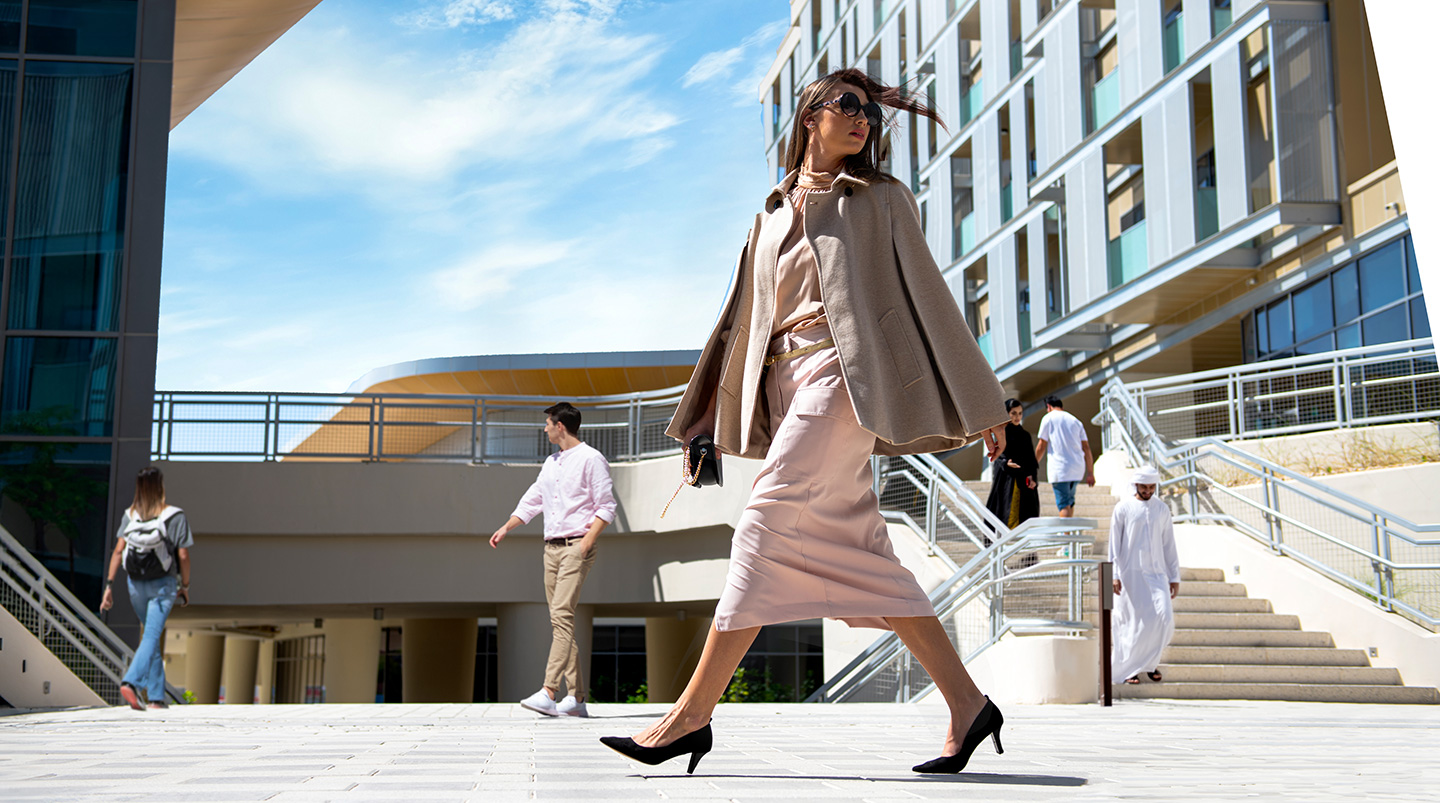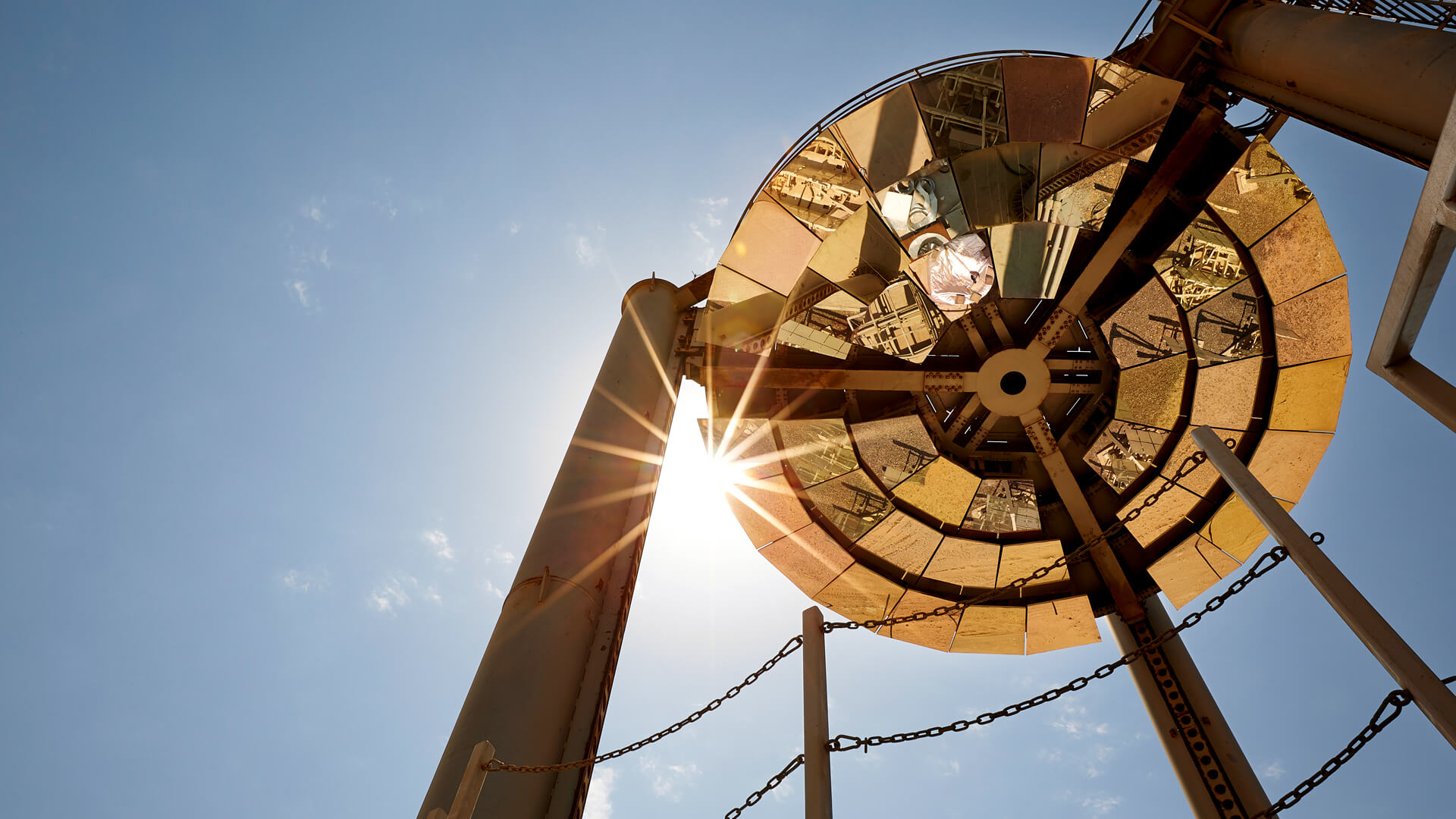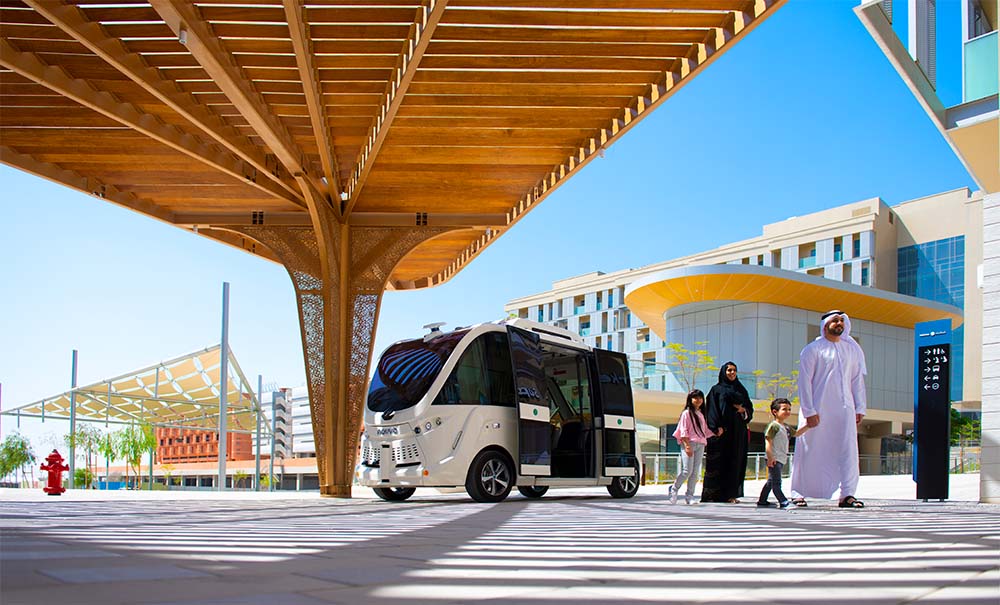
Sustainability at Masdar city
Sustainability isn’t just a buzzword at Masdar City. It’s a fundamental philosophy that governs every aspect of our design, development, operations, and business strategy. The leaders that envisioned Masdar City recognized that pursuing sustainability—and diversifying the UAE economy beyond oil and gas—was the only way forward.

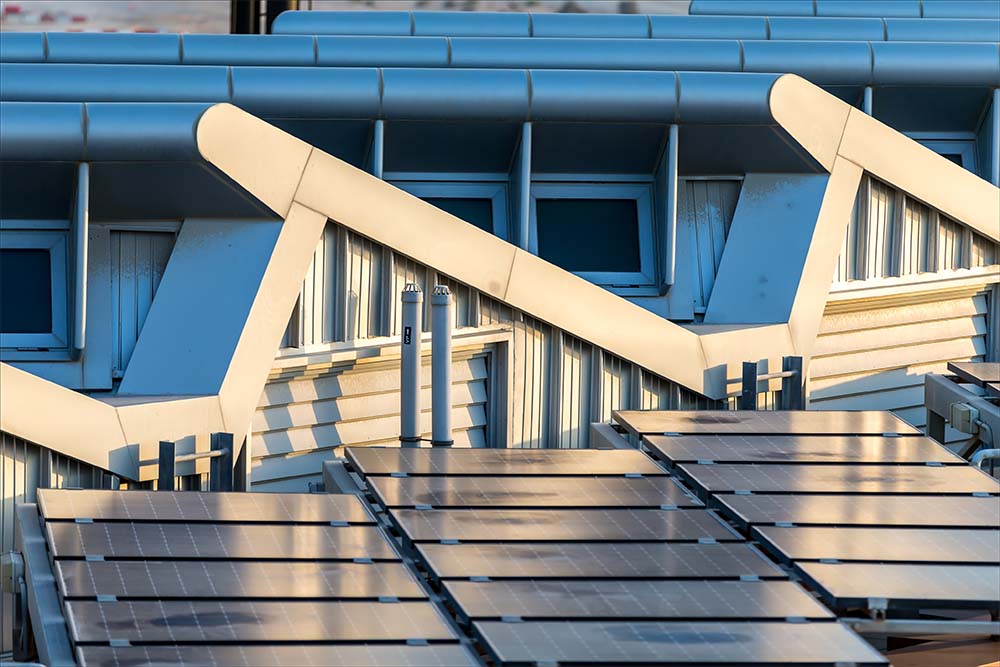
What is Sustainability?
We use Earth’s limited energy
resources every day to develop and power homes and offices, drive cars, use technology, and
more. Living sustainably means stewarding those resources wisely and minimizing carbon
emissions to help ensure that future generations can enjoy Earth’s resources as much as we
do.
We need to rethink cities and urbanization, which are contributing to a huge proportion of
the world’s carbon emissions.
We need to rethink cities and urbanization, which are
contributing to a huge proportion of the world’s carbon emissions. How?

Heat
Cities tend to be warmer than surrounding areas due to the “heat island effect” caused by the concentration of buildings, pavement, and limited green space. This leads to increased energy consumption due to the need for cooling systems such as air conditioning.

Air Pollution
Urban areas are plagued by air pollution from fossil-fuel powered vehicles and industrial activities that release pollutants.

Energy consumption
Cities are major energy consumers. Most energy still comes from fossil fuels, which contribute to carbon emissions and climate change.

Waste management
Cities generate large amounts of waste, which are transferred to landfill sites. This contributes to carbon emissions when not properly managed.

Water management
Urban areas are huge water consumers and face challenges related to water scarcity and flooding—particularly here in the UAE. Climate change exacerbates these issues through altered precipitation patterns and sea-level rise.

Loss of green spaces
Urbanization often leads to the loss of green spaces and natural habitats, resulting in reduced biodiversity and ecosystem services.

Transportation
Urban areas are transportation hubs that rely heavily on personal transport, most of which still uses fossil fuels.
Cities have a vital role to play in addressing these climate change issues
That is exactly what Masdar City is doing. We’re building an urban community that is a solution to climate change rather than a contributor through an approach to sustainability that has three interconnected pillars:
Sustainability Standards
Masdar City is a local, UAE entity with international reach. We adhere to the highest international and local standards of sustainability:
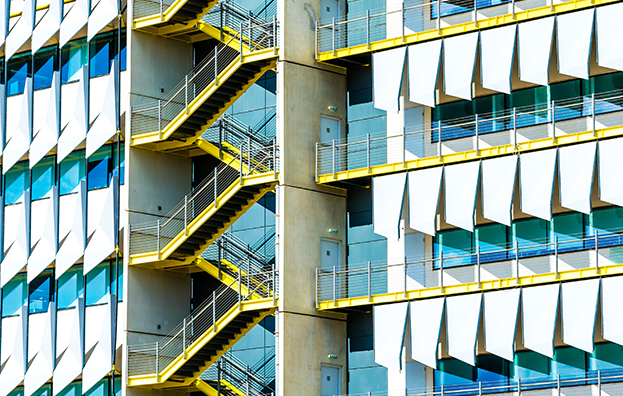
LEED
LEED (Leadership in Energy and Environmental Design) is the most widely used and recognized green building rating system worldwide. It provides a framework for energy- and cost-efficient green buildings. A building may qualify for LEED Platinum, Gold, Silver, or Certified ratings.

LEED
LEED (Leadership in Energy and Environmental Design) is the most widely used and recognized green building rating system worldwide. It provides a framework for energy- and cost-efficient green buildings. A building may qualify for LEED Platinum, Gold, Silver, or Certified ratings.
Ratings are
based on points earned by adhering to prerequisites and a credit
system that addresses carbon, energy, water, waste, transportation,
materials, health, and indoor environment.
Most of Masdar City’s buildings are rated LEED Platinum or Gold for
design, construction, or operations and maintenance. Currently,
we’re home to one of the largest clusters of LEED Platinum buildings
in the world.
LEED also has a separate rating system that verifies net-zero
achievements. LEED Zero-Energy recognizes that a building’s energy
use has a net-zero balance over a period of 12 months.
Our lineup of distinctive LEED Platinum rated buildings include:
• The SIEMENS Building
• The IRENA Building
• Eco-Residences 1 and 2
• Central Residence
• The UAE Space Agency
• The Abu Dhabi Quality and Conformity Council HQ
Estidama
Estidama, the Arabic word for sustainability, is a sustainable urban planning program developed by the Abu Dhabi Department of Urban Planning and Municipalities, formerly known as Abu Dhabi Urban Planning Council, in the UAE.
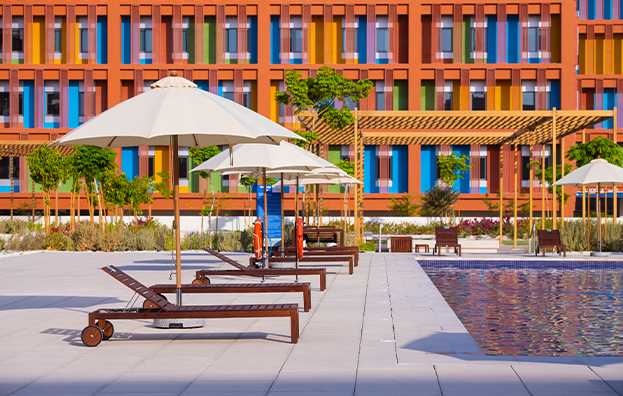
Estidama
Estidama, the Arabic word for sustainability, is a sustainable urban planning program developed by the Abu Dhabi Department of Urban Planning and Municipalities, formerly known as Abu Dhabi Urban Planning Council, in the UAE.

It includes the Estidama Peal
Rating System, which guides and rates the sustainability performance
of communities, buildings, and villas. It is similar to LEED, but
tailored to the unique climate of the UAE, with a particular focus
on water conservation.
Buildings can be rated 1, 2, 3, 4, or 5 Pearls based on scores in
seven categories: Development, natural systems, livability, water,
energy, materials, and innovation.
All new buildings at Masdar City are mandated to achieve at least a
3-Pearl Estidama rating.
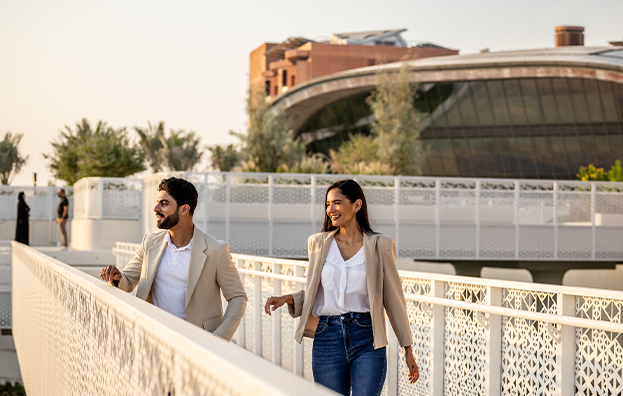
WELL
The WELL certification
system focuses on enhancing people’s experience within the built environment.
Administered by the International WELL Building Institute, WELL evaluates building features and operations that improve building occupants’ health and
wellness, including air quality, water, food options, access to natural light,
opportunities for physical activity.
Zero-Energy Certification
The International Living Future Institute’s Zero Energy Certification is recognized worldwide as one of the highest standards of energy performance. Projects with a Zero Energy Certification have demonstrated that they are highly efficient, harnessing energy from the sun, wind, or earth to produce their net annual energy demand.
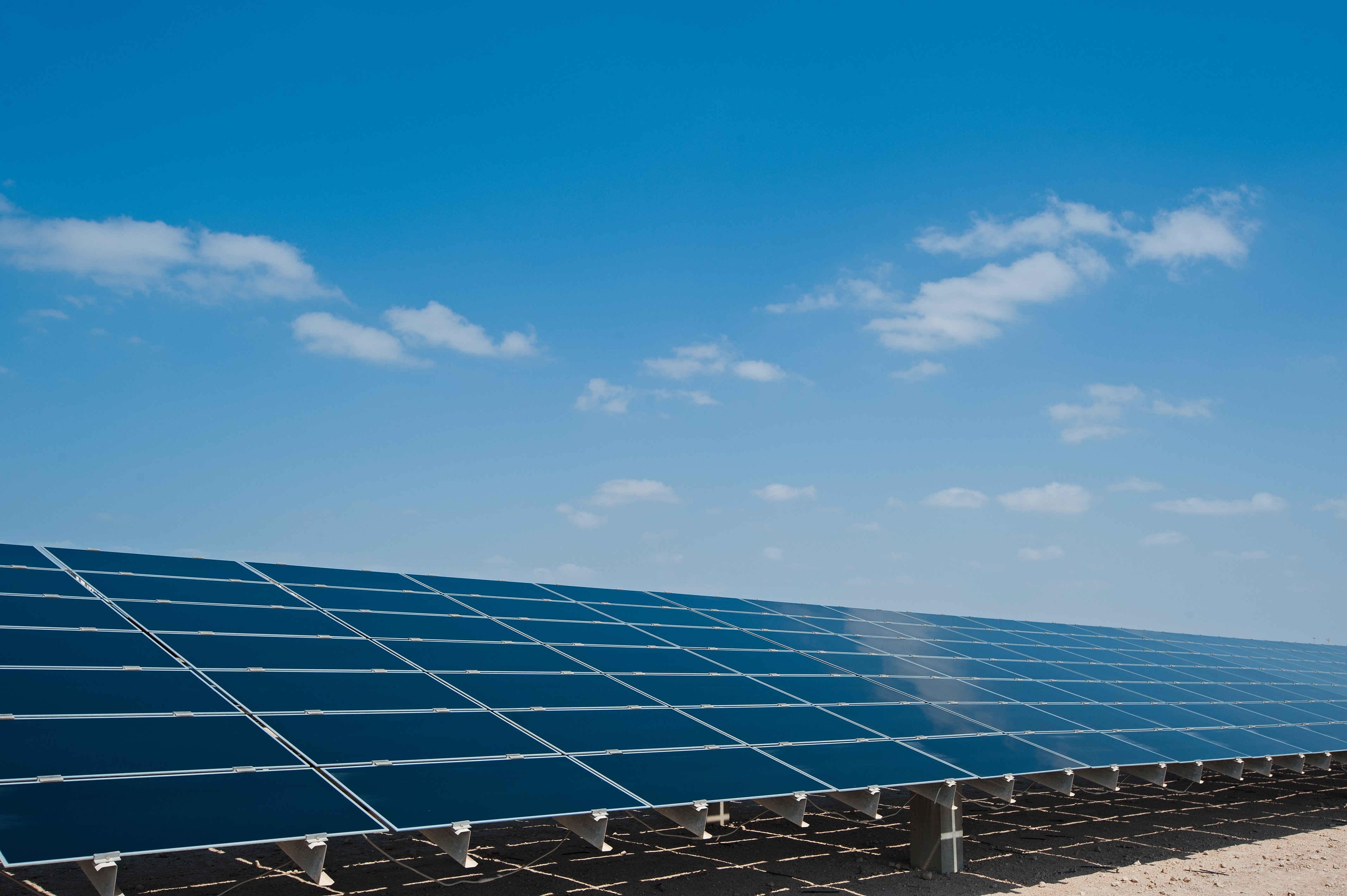
Zero-Energy Certification
The International Living Future Institute’s Zero Energy Certification is recognized worldwide as one of the highest standards of energy performance. Projects with a Zero Energy Certification have demonstrated that they are highly efficient, harnessing energy from the sun, wind, or earth to produce their net annual energy demand.

The certification is awarded following a third-party
audit of
actual performance data over a 12-month period.
Three of our upcoming
buildings are planned to achieve Zero Energy
Certification:
• NZ1
• The HQ at Masdar City Square
• Co-Lab at The Link
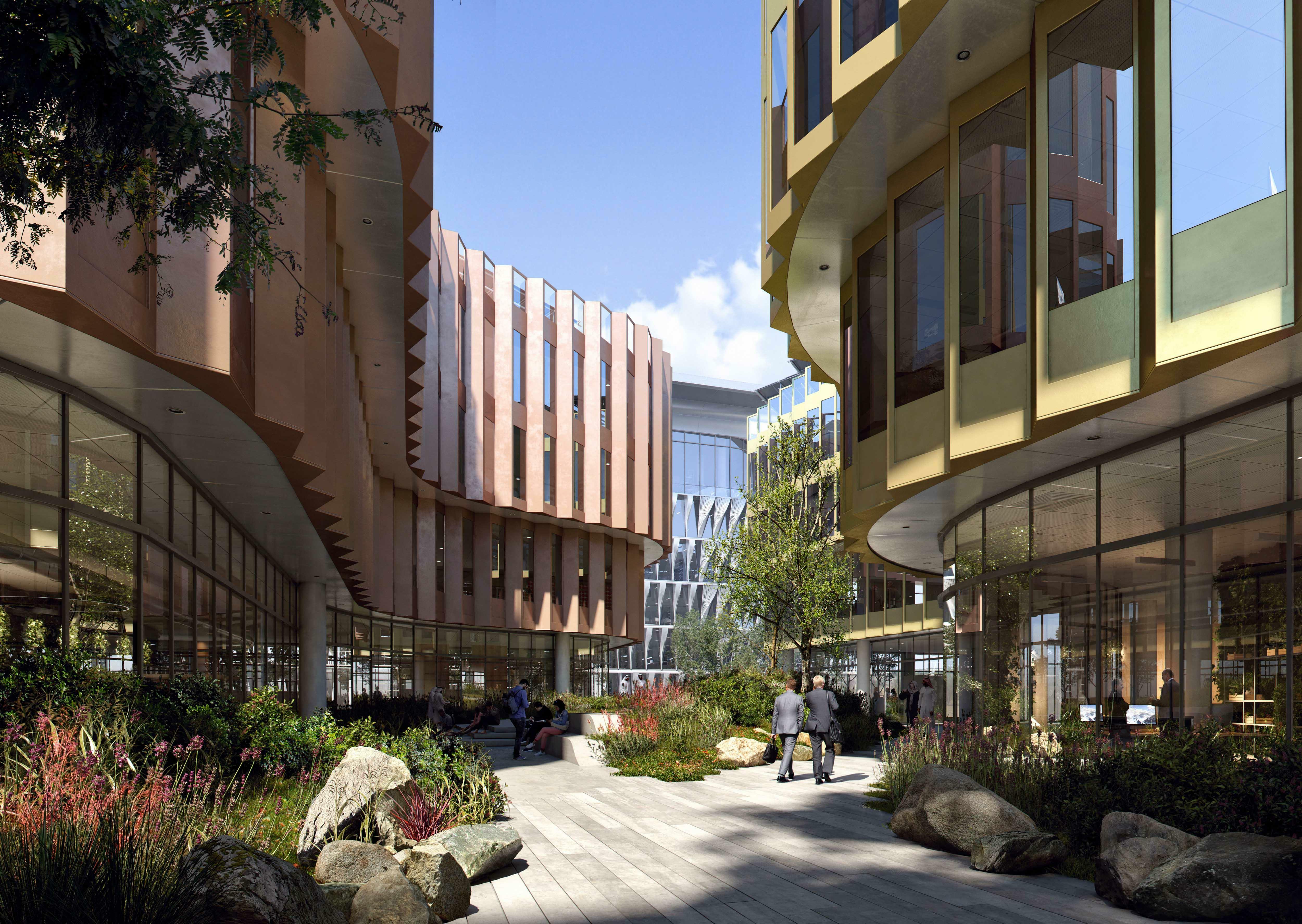
WIREDSCORE
WiredScore assesses and improves digital connectivity and smart technology in homes and offices globally. By evaluating digital infrastructure and certifying future-readiness, the company enhances connectivity for residents and workers, ensuring a smooth transition into the future. Buildings can qualify for a WiredScore certification of silver, gold, or platinum, for both office and residential spaces.

WIREDSCORE
WiredScore assesses and improves digital connectivity and smart technology in homes and offices globally. By evaluating digital infrastructure and certifying future-readiness, the company enhances connectivity for residents and workers, ensuring a smooth transition into the future. Buildings can qualify for a WiredScore certification of silver, gold, or platinum, for both office and residential spaces.
WiredScore certification for offices evaluates five essential aspects of a building’s digital capabilities, ensuring adaptability to future technologies and enhancing user experience. This certification benefits both building owners and occupants, enhancing the property’s digital infrastructure and establishing a reputation for providing modern office spaces.
Assessment areas includes:
• Resilience: Evaluate the robustness and security of your digital infrastructure, ensuring uninterrupted broadband connectivity for occupants.
• Future Readiness: Assess the flexibility and capacity of your digital infrastructure to accommodate emerging technologies, providing confidence in future adaptability.
• Mobile Connectivity: Examine mobile coverage throughout the property, including basements, and evaluate readiness for 5G technology.
• Provider Options: Review the availability of multiple high-speed fiber providers, fostering competitive pricing and ensuring backup options in case of service disruptions.
• User Experience: Evaluate the quality of digital connectivity throughout the building, including seamless WiFi coverage and uninterrupted video streaming.
Our lineup of WiredScore Platinum certified buildings include:
•Masdar City Square
•The Link
SMARTSCORE
SmartScore empowers landlords and developers to construct cutting-edge smart buildings that prioritize exceptional user experiences, drive cost efficiency, meet high sustainability standards, and are fully future-ready. Buildings can qualify for a SmartScore certification of silver, gold, or platinum.
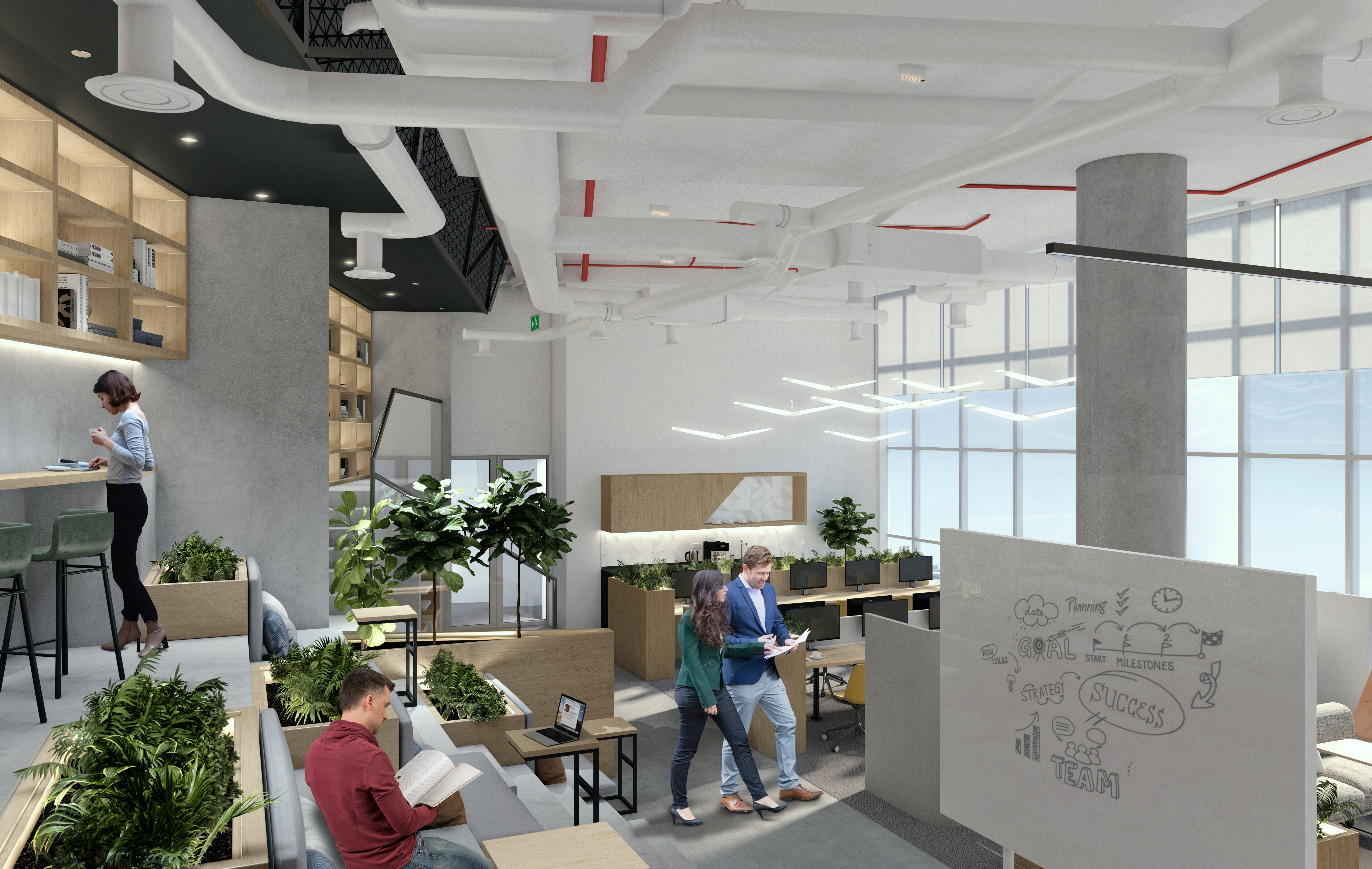
SMARTSCORE
SmartScore empowers landlords and developers to construct cutting-edge smart buildings that prioritize exceptional user experiences, drive cost efficiency, meet high sustainability standards, and are fully future-ready. Buildings can qualify for a SmartScore certification of silver, gold, or platinum.

Tailored for offices, SmartScore certification offers clear guidelines on the criteria for smart building status, expert guidance on achieving certification, and tangible proof of the value it brings to assets.
Our lineup of SmartScore Gold certified buildings include:
•Masdar City Square
•The Link
join our
community
Stay tuned and get to know the latest from Masdar City
